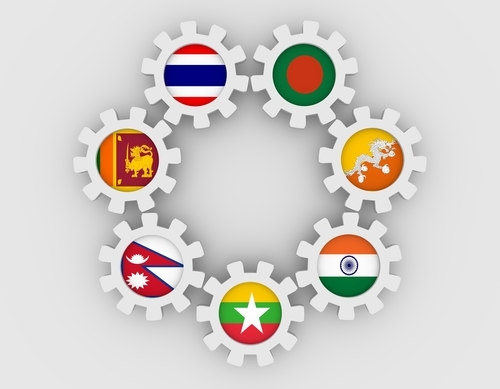Telemedicine network to benefit seven BIMSTEC nations launched
IANS Jul 14, 2017
A telemedicine network wherein health professionals from the seven-nation group of BIMSTEC will be able to interact regularly and share knowledge was launched here on Thursday, said Union Minister Faggan Singh Kulaste.

The JIPMER-BIMSTEC Telemedicine Network (JBTN) is part of Prime Minister Narendra Modi's "Act East" policy and was launched on the Foundation Day of Jawaharlal Institute of Postgraduate Medical Education & Research (JIPMER), said the Minister of State for Heath and Family Welfare.The Bay of Bengal Initiative for Multi-Sectoral Technical and Economic Cooperation (BIMSTEC) is an international organisation involving India, Bangladesh, Myanmar, Sri Lanka, Thailand, Bhutan, and Nepal."I am quite optimistic that with the establishment of this network, the health professionals from the member countries would be able to interact regularly with each other and improve their knowledge which will ultimately translate into improved access to healthcare especially to those residing remote areas or the areas where there is shortage of trained manpower," Kulaste said Inaugurating the JBTN here.
Kulaste said the main objective of BIMSTEC is technological and economic cooperation among countries along the coast of the Bay of Bengal."The aim of JBTN is to improve regional cooperation in the field of healthcare, strengthen telemedicine-based patient care services and share medical knowledge among BIMSTEC nations," he said.All seven countries of BIMSTEC region were linked via video conferencing during the event here.The BIMSTEC region is home to around 1.5 billion people which constitute around 22 per cent of the global population.According to JIPMER, various priority sectors of cooperation were identified among the BIMSTEC countries that includes health and technology.
"Some of the medical problems are peculiar to BIMSTEC countries and there is a great deal of disparity in quality and access to healthcare between urban and rural regions in these countries," JIPMER said.Also, member countries of BIMSTEC face acute shortage of trained specialists in the district and peripheral health facilities.According to M.K. Bhan, President, JIPMER, 25 percent of the Indian population lives in remote areas and the challenge is to provide healthcare facilities to them.He said the Central government is working on a system whereby graduate nurses would be trained in prescribing medicines for selecting ailments so that healthcare access is there for populace living in remote areas.
Bhan said there is a need for village health and wellness centres to be headed by trained nurses to be called clinical graduate nurses, wherein the centre will be IT connected and data will be stored in cloud/remote server.According to S.C. Parija, Director, JIPMER, there is a great disparity in healthcare in urban and rural areas of BIMSTEC member nations and that the telemedicine network is an effort to bridge the gap.The High Commissioner of Bangladesh in India Syed Muazzem Ali, Deputy High Commissioner of Sri Lanka V. Krishnamoorthy and other representatives of BIMSTEC countries were present at the function
-
Exclusive Write-ups & Webinars by KOLs
-
Daily Quiz by specialty
-
Paid Market Research Surveys
-
Case discussions, News & Journals' summaries